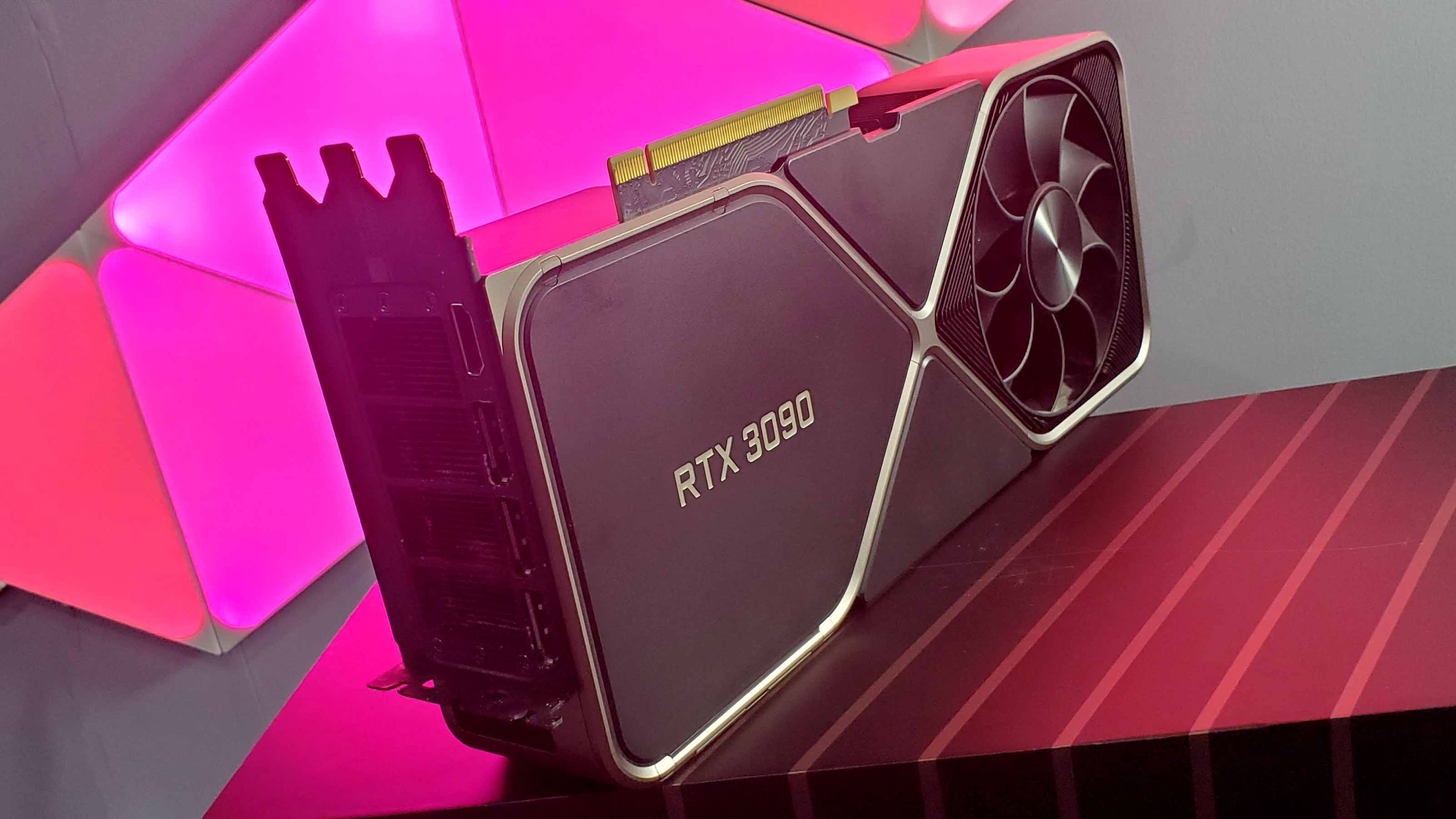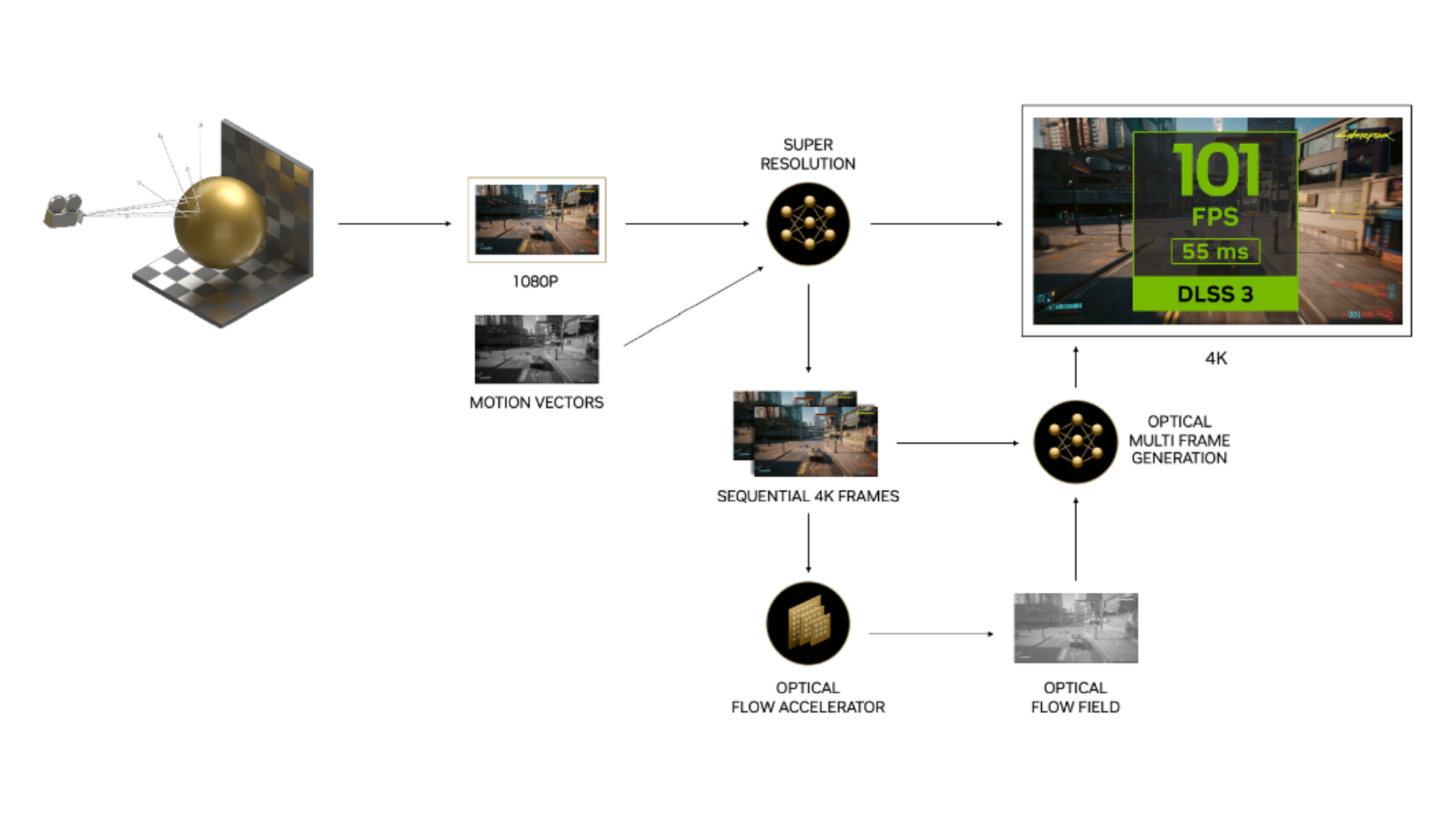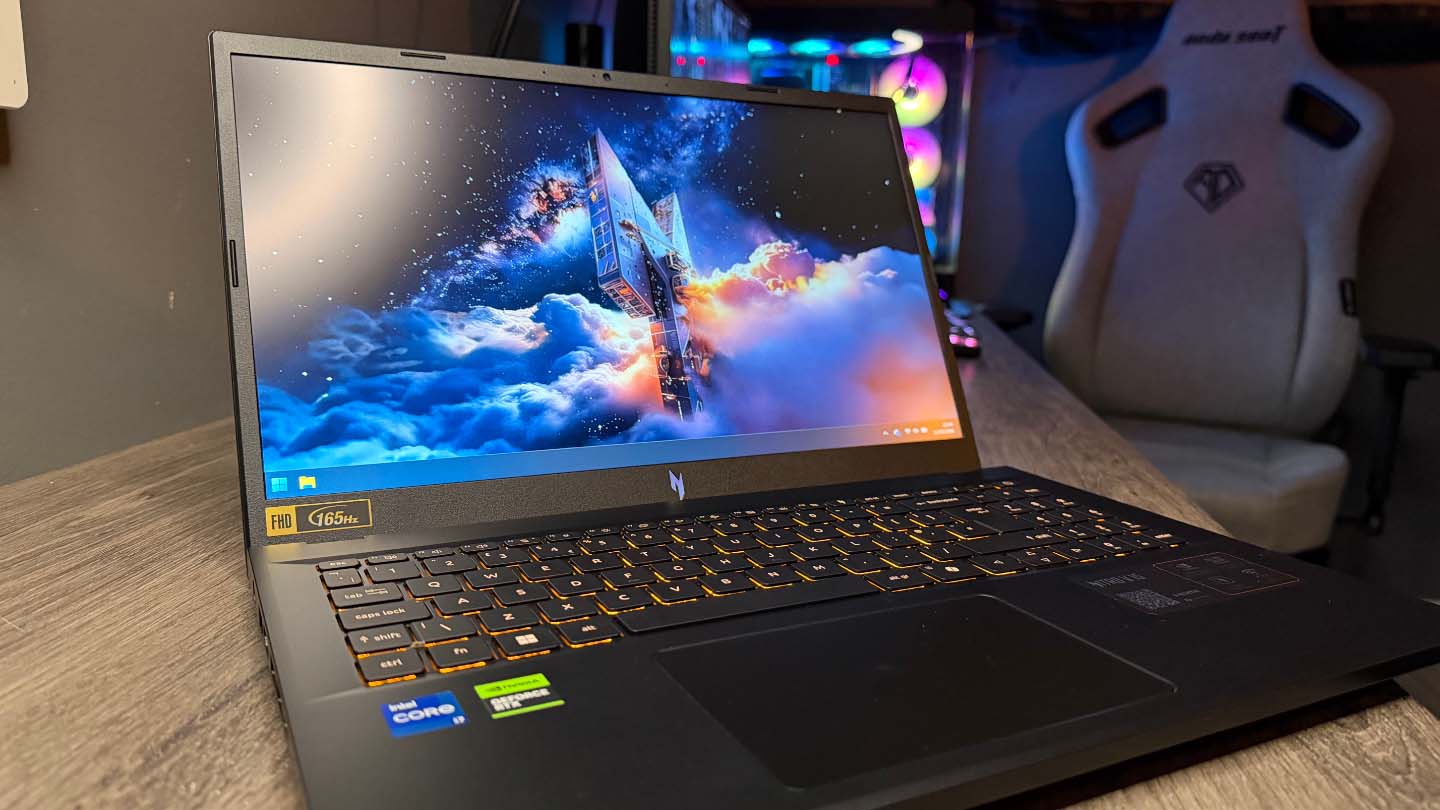Now Nvidia's hardware blocks have been AI'd out of existence all it will take for Frame Generation support on RTX 20- and 30-series GPUs is 'further optimization and testing'
The pros and cons of backporting Frame Gen to RTX 20- and 30-series graphics cards.

Keep up to date with the most important stories and the best deals, as picked by the PC Gamer team.
You are now subscribed
Your newsletter sign-up was successful
Want to add more newsletters?

Every Friday
GamesRadar+
Your weekly update on everything you could ever want to know about the games you already love, games we know you're going to love in the near future, and tales from the communities that surround them.

Every Thursday
GTA 6 O'clock
Our special GTA 6 newsletter, with breaking news, insider info, and rumor analysis from the award-winning GTA 6 O'clock experts.

Every Friday
Knowledge
From the creators of Edge: A weekly videogame industry newsletter with analysis from expert writers, guidance from professionals, and insight into what's on the horizon.

Every Thursday
The Setup
Hardware nerds unite, sign up to our free tech newsletter for a weekly digest of the hottest new tech, the latest gadgets on the test bench, and much more.

Every Wednesday
Switch 2 Spotlight
Sign up to our new Switch 2 newsletter, where we bring you the latest talking points on Nintendo's new console each week, bring you up to date on the news, and recommend what games to play.

Every Saturday
The Watchlist
Subscribe for a weekly digest of the movie and TV news that matters, direct to your inbox. From first-look trailers, interviews, reviews and explainers, we've got you covered.

Once a month
SFX
Get sneak previews, exclusive competitions and details of special events each month!
A lot of things are going to change when Nvidia's new RTX Blackwell cards launch this month, with a bunch of it coming to existing cards as well as the RTX 50-series. But will one of those changes see DLSS Frame Generation coming to the Ampere-based RTX 30-series? It's possible, because now we're just talking about "further optimization and testing" rather than dedicated hardware locks.
Previously, the main reason given for Nvidia's Frame Generation feature to be locked to the RTX 40-series of cards was that it had dropped in an enhanced lump of silicon into the new Ada GPUs. The optical flow accelerator was key to Nvidia's Frame Gen being something more stable and accurate than the sort of interpolation used by other systems.
But the RTX 30-series optical flow units weren't as capable, and so Nvidia chose to hardware-lock the feature to the RTX 40-series, and above.
The situation has changed now, as the new frame generation model no longer makes use of the optical flow accelerator hardware at all and has been entirely replaced by a more efficient AI model. Alongside the frame generation AI model, the optical flow AI model helps reduce the computational cost of generating these in between frames, with a touted 30% reduction in VRAM usage and a potential 10% uplift in overall frame rates.
And this isn't just when it comes to the new Multi Frame Generation feature of the RTX Blackwell cards, either. This new model is rolling out across any game that currently supports Frame Generation, whether by native integration by the game devs or via the DLSS Override settings in the Nvidia App.
The obvious question from that is if the hardware-blockage which stopped the RTX 30-series from using the Frame Generation feature is being AI'd out of existence, why can't we have nice things on the older cards, too?
I put that question to Nvidia myself and it turns out that there are no hardware reasons that it cannot work.
Keep up to date with the most important stories and the best deals, as picked by the PC Gamer team.
"DLSS Frame Generation was designed and optimized for RTX 40 Series and later," says Nvidia. "Support for previous GPU architectures would take further optimization and testing."
So, 'all' it takes is some optimisation to get the feature working on the RTX 30-series, and maybe even the RTX 20-series given that those GPUs, too, contain the Tensor Cores required for the actual nuts and bolts of the Frame Generation calculations. There are performance differences between those Tensor Cores and the units inside the RTX 40-series, so this is certainly no tacit admission that Frame Gen is coming to older cards, just that it would need some tweaking and testing by Nvidia to ensure that it's in a fit state for release.
What I would say is that I know Nvidia has been messing around with the RTX 30-series and Frame Generation for a while now, likely more seriously when it first started working with the AI-replacement for the optical flow accelerator. For me, that makes it more likely we'll see a potential fillip for RTX 30-series folk down the line.

Best CPU for gaming: The top chips from Intel and AMD.
Best gaming motherboard: The right boards.
Best graphics card: Your perfect pixel-pusher awaits.
Best SSD for gaming: Get into the game ahead of the rest.
Nvidia, however, would likely say it only wants to release such an update should the feature be strong enough on the older cards. And, granted, Frame Generation works its best when you've already got frame rates of around 60 fps+ without it, so if you were hoping that such an update would suddenly make your RTX 3060 a monster we probably need to have a talk.
The flip side of that, however, is that AMD's agnostic frame generation feature is already being used by a ton of RTX 30-series owners to good effect. And, while it may not deliver the sort of image quality DLSS Frame Generation can deliver natively, users are generally happy with getting themselves some higher frame rates gratis.
What has Nvidia got to lose by offering the new feature to existing users, then? Well, if you look at the RTX 50-series line up you could make the case that it's there specifically for RTX 20- and 30-series owners in terms of the upgrade cycle. And if you just hand over a free speed boost to those gamers are they going to be as willing to drop a ton of cash on a whole new graphics card?

Dave has been gaming since the days of Zaxxon and Lady Bug on the Colecovision, and code books for the Commodore Vic 20 (Death Race 2000!). He built his first gaming PC at the tender age of 16, and finally finished bug-fixing the Cyrix-based system around a year later. When he dropped it out of the window. He first started writing for Official PlayStation Magazine and Xbox World many decades ago, then moved onto PC Format full-time, then PC Gamer, TechRadar, and T3 among others. Now he's back, writing about the nightmarish graphics card market, CPUs with more cores than sense, gaming laptops hotter than the sun, and SSDs more capacious than a Cybertruck.


